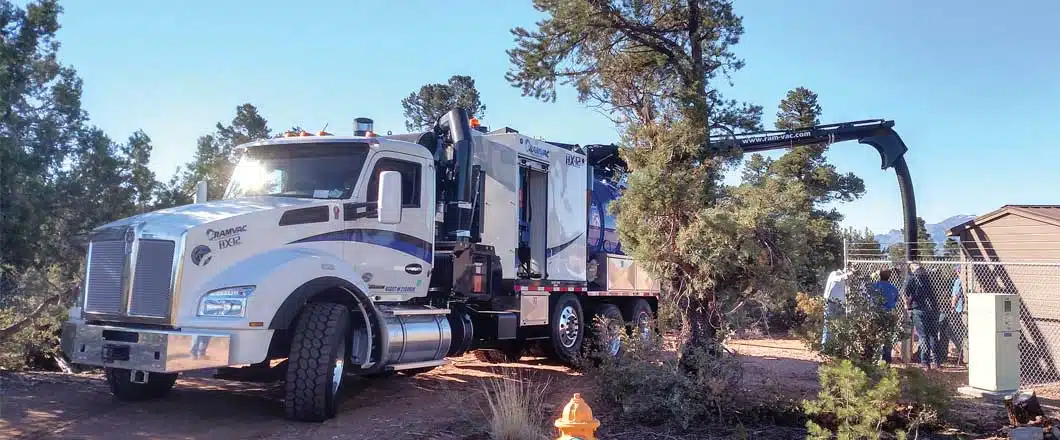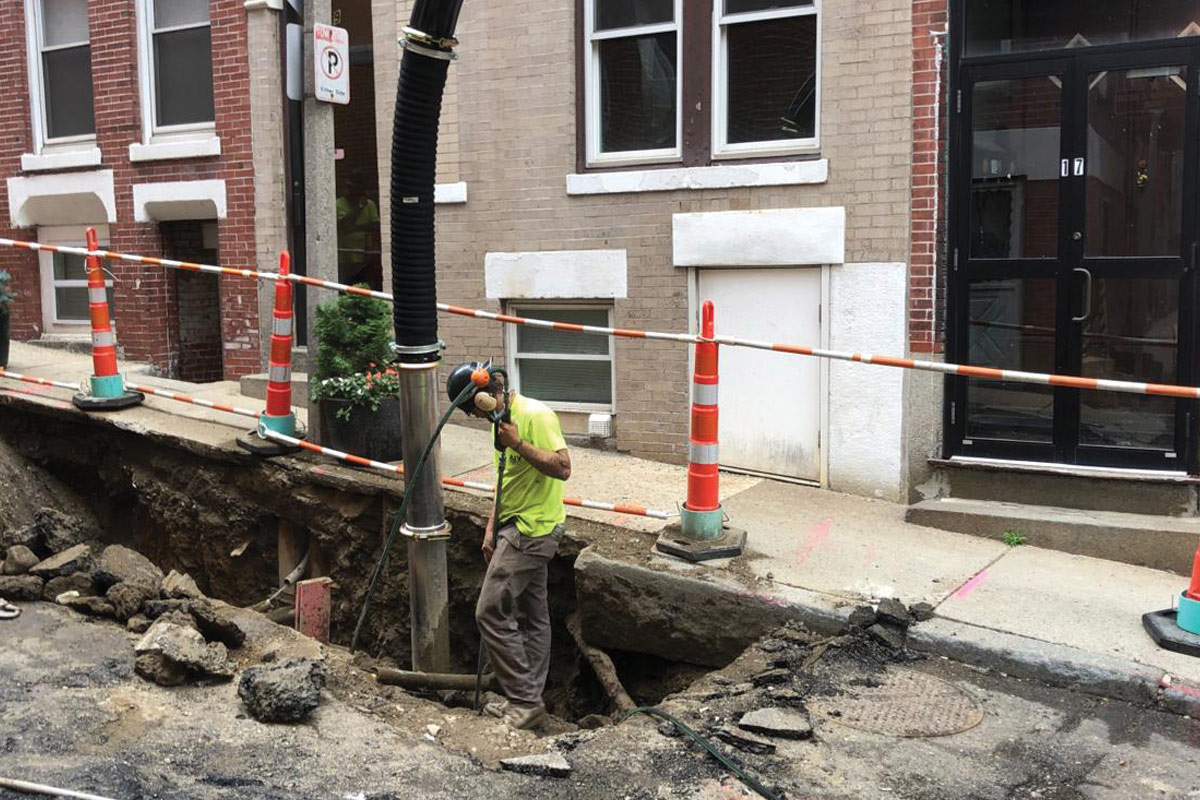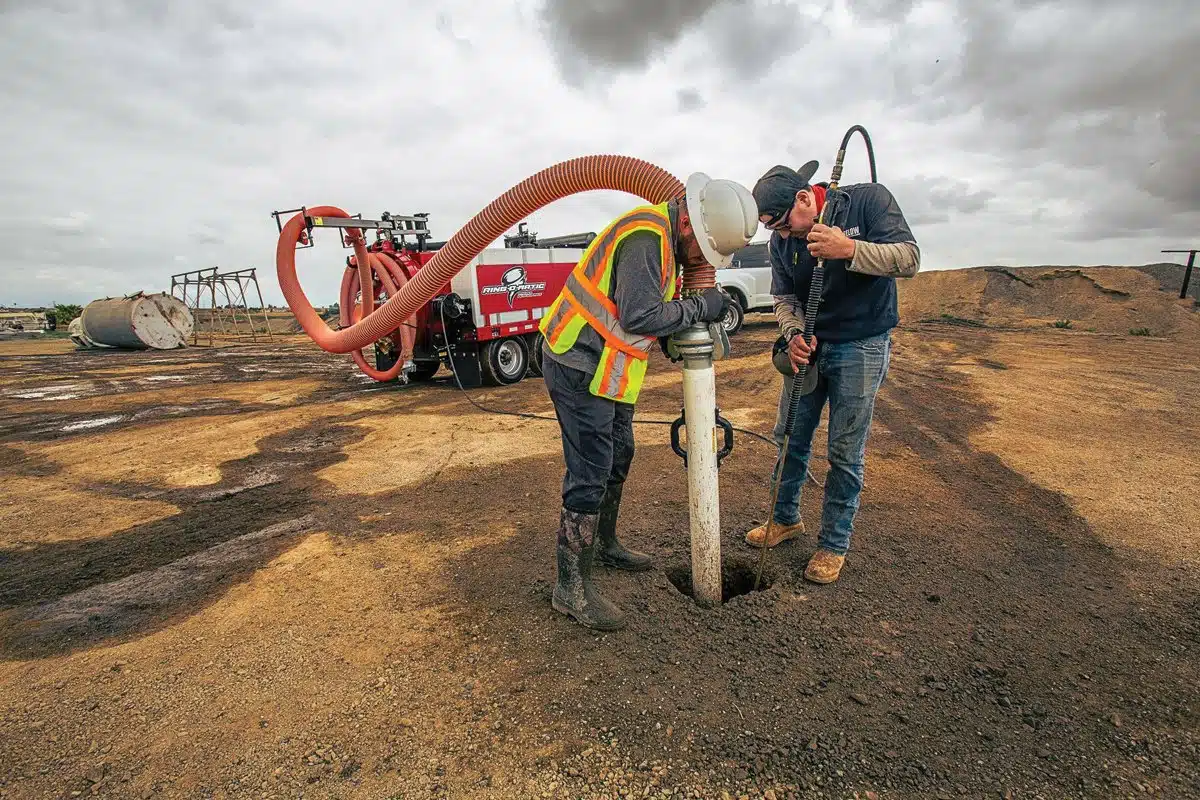
Tips for Hydro Excavation Safety
When using hydro excavators to locate underground utilities, there are a few tips and tricks to help make sure you and the people around you are kept safe.
Although hydro excavation is a safe way of digging in the ground compared to traditional excavation, there are still some things to look out for. We have to remember that if we are operating a hydro excavator, we are in the safety business. It is the whole reason these trucks exist, and we need to show that in how we work.
Safety begins before you ever step foot into the truck. Making sure that all of the inspections of your chassis and equipment are completed. Climbing in and out of the truck is done facing forward, toward the cab, with three points of contact. Once out on the road, it is important to keep an eye on your bridge heights and local non-truck routes.

After you have arrived on the jobsite, be sure to check out your soil conditions of where you plan on parking the truck to perform your excavation. If the soil is soft, you will not want to park the truck close to the hole you are going to dig. If you are on a hard surface, the closer to the hole you will be able to park. You will also need to park the truck where you can get it out full of debris. Just because you were able to drive somewhere empty, doesn’t mean you will be able to get out full. Make sure you put on all of your PPE before exiting the truck.
Always be aware of your surroundings. Not only when you are driving the truck, but also when you are operating the machine. One of the most dangerous aspects of hydro excavators is overhead power lines. You have to be aware of these and keep a safe distance. Not only when you are moving your boom, but also when you are dumping. Steer clear of both people and vehicles when moving your boom. Look for clues on what you might be coming across underground that day — gas meters on buildings, electric meters, etc.
Hydro excavators perform their tasks by using very powerful vacuums and very powerful water pumps. It is important not to take for granted how powerful these vacuums can be. Never stick your arm up a vacuum tube. Always make sure that your remote is wrapped around your arm and neck (not just your neck) with easy access to the emergency stop. Make sure loose clothing does not get caught in the vacuum tube. These trucks are powerful enough to suck up material from several hundred feet away.

Water pressure can also be very dangerous to work with. The industry standard for water pressure is set to ensure not only the safety of the operator but also the safety of the lines that are being located. Running hydro excavators at too high of psi will damage a line or cut the toes off an operator. To gain more performance from your digging wand, a higher GPM tip is recommended rather than a higher pressure setting.
It should be noted here that on all equipment, never look for hydraulic leaks with your hand while the machine is running. Hydraulic pressure is over 3,000 psi and can inject that oil right into your body. Even at 2,500 psi, water pressure can be dangerous. Never leave your digging wand laying around with the valve on. If you accidently turn on the water pump, the spray could hurt somebody or damage something, also the wand can shoot across the ground and hit someone.
When digging, always be sure not to undermine things like power and telephone poles. If you are sucking up drilling mud while someone is conducting an underground bore, be sure not to have a hand on your boom tubes or equipment if they are boring near powerlines. If they strike a line, you do not want to risk electrocution. Just run the boom with your remote only.

Always secure the hole you are digging. If people are going to be working in the excavated area, be sure to use sloping or shoring or a trench box as needed. Never stand too close to the side of a soft bank that could cave in underneath you.
After you have filled your truck and have headed to the dump. It is important to make sure you are dumping on level solid ground. Always make sure you pay attention to any overhead obstructions when dumping. Open your debris body door before lifting your debris tank. Never stand underneath a raised debris tank or debris tank door. Once you have cleaned your debris tank and door. Make sure your debris tank is down all the way, the rear door is completely closed and locked. Check that the boom is stowed properly before driving away.
I hope some of these tips will help you out and keep you safe in the hydro excavation world.
Tim Van Til is the industrial sales manager for RamVac.




